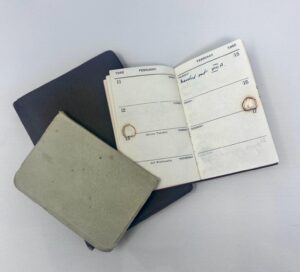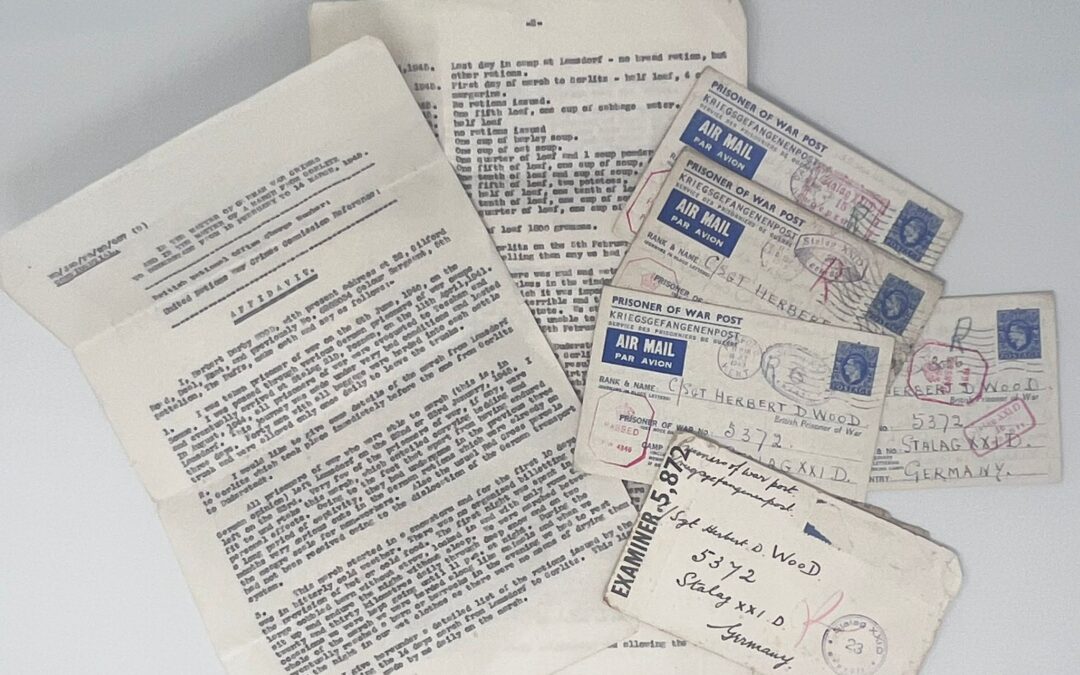Forgotten Friday – Stalag XXI-D Artefacts!
It’s #ForgottenFriday! Today, we are looking at some of the fantastic donations we received at the museum, which mention a POW camp named Stalag XXI-D.
Some of the donated items include original documents belonging to C/SGT Herbert D Wood. These documents include his diaries, paybooks and an affidavit regarding the March from Gorlitz to Duderstadt 15/2/1945 to 14/3/1945.
Within this collection donated to the museum, there are several artefacts what mention the Prisoner of War Camp named Stalag XXI-D (21D), including letter to his parents back home! Today we are going to delve into the history of where Herbert Wood was based for many years, POW Camp: Stalag XXI-D.

Artefacts – Herbert Wood

Artefacts – Herbert Wood Diary
But what was this POW camp?
Stalag XXI-D was a prisoner of war camp during World War II. It was located in Poznań, Poland, which was then part of German-occupied territory. The camp held prisoners from various Allied countries, primarily soldiers captured by the German military. Stalag XXI-D was one of many such camps established by the Germans to detain and control prisoners of war during WWII. These camps were often harsh environments where prisoners faced difficult conditions and limited resources.
Conditions in Stalag XXI-D, like many other POW camps, varied throughout the war and depended on factors such as the resources available, the treatment policies of the camp commanders, and the oversight by international organisations like the Red Cross.
Life in the camp was challenging for the prisoners. They often faced overcrowding, inadequate shelter, insufficient food, and limited medical care. Many prisoners also experienced forced labour, where they were compelled to work in various capacities to support the German war effort.
Despite the difficult conditions, prisoners in Stalag XXI-D often formed close-knit communities and relied on each other for support and camaraderie. They found ways to pass the time, such as engaging in recreational activities, sharing stories, and maintaining hope for eventual liberation.
Stalag XXI-D, like other POW camps, became a significant part of the wartime experience for the soldiers who were held there. After the war, many former prisoners shared their stories to ensure that the experiences of those who were captured and interned during World War II were not forgotten.
A huge thank you goes to the donator of these items; the collection is now safely stored in our archives and collection. We will ensure that artefacts like this will be preserved for many future generations to see.


